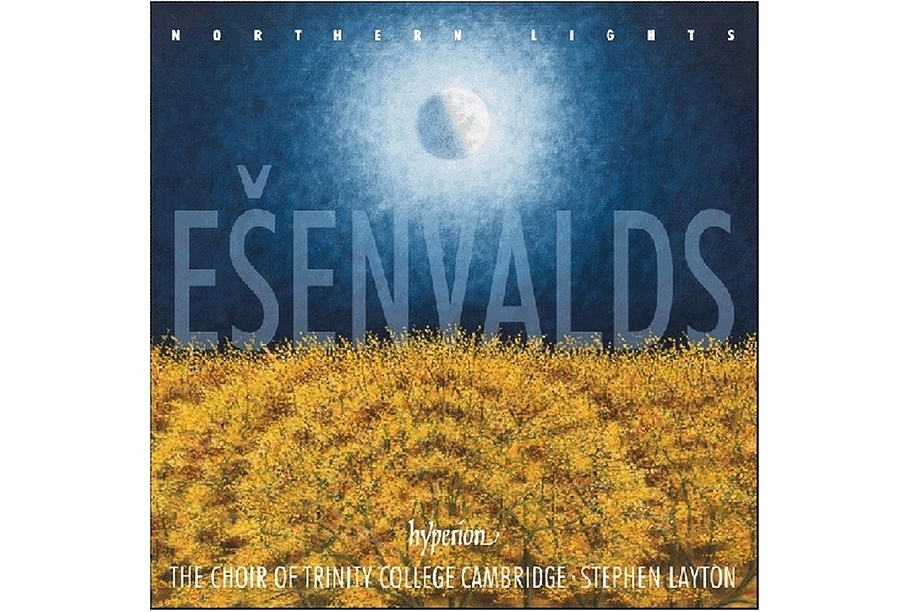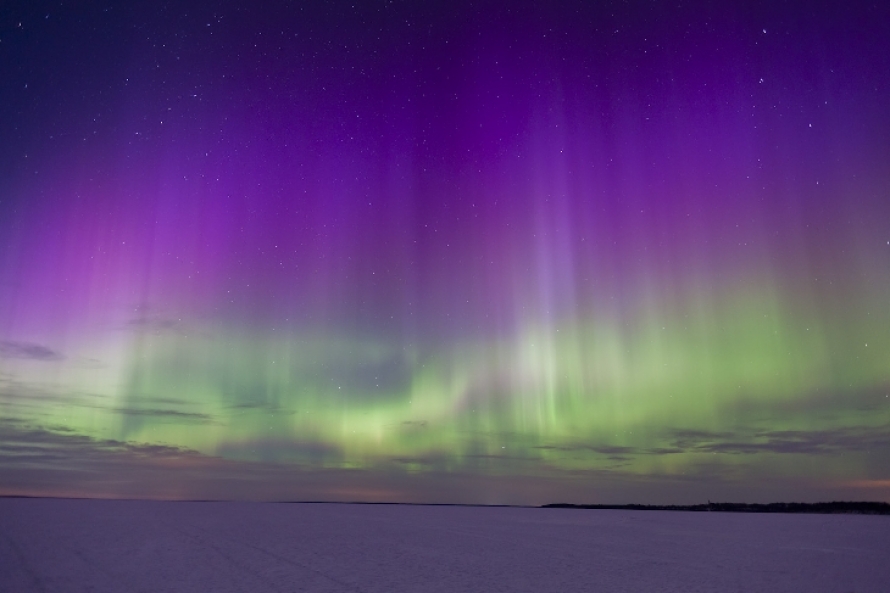The multimedia symphony is the result of four years’ worth of touring the globe’s northern lands and gathering the folk wisdom of its peoples’ experience with the Aurora Borealis. Ešenvalds, with his team of cameramen, traveled to visit various lands of the sub-Arctic and Arctic, combining what they learned from locals about the composer’s obsession with this historical and scientific knowledge about the Earth’s largest heavenly natural optic phenomenon.
Then the 38-year old former Baptist seminarian applied his “unique coloristic vision” to the work, which will be performed live for the first time tonight on the Opera stage by the Liepāja Symphony Orchestra and state choir Latvija, conducted by Māris Sirmais. Ešenvalds admits he read more than 150 books about the topic during the process of composing the work.
The show is one of the focal points of the Cultural Programme of Latvia's six-month EU Presidency, which it shares with prior holder Italy, and will pass off to Luxembourg in July.
Unique opportunity in #Riga on Monday - “Nordic Light” symphony by Ēriks Ešenvalds premiere - https://t.co/RXcpBXBApZ pic.twitter.com/qDWnPw8AXZ
— Latvian Presidency (@eu2015lv) April 25, 2015
“I was fascinated by the folk tales about the Lights. It was part of the lives of these people,” he told LTV’s morning news program Rīta Panorāma Monday. “Keep in mind this is the Earth’s largest atmospheric optical phenomenon. When it overcomes the starry skies above you, your vision alone cannot take it all in. Maybe only the owl can full appreciate the Northern Lights from one side of the horizon to the other,” he composer mused, suggesting his next heartfelt scientific motif of the natural world might be – volcanoes.
“Nordic Light” will continue to be seen and heard in Latvia and elsewhere, for instance at its North American premiere in Seattle in March 2017 at a unique educational performance dedicated to the all-too-rare natural light show so specific to the northern hemisphere.
Independent British classical music label Hyperion Records, which publishes Ešenvalds’ work, offers the following description of the excerpts from “Northern Lights” available since February on the album of the same title by the composer’s former fellows at the Trinity College Choir of Cambridge here:
“The ecstatic collision of energetic charged particles with atoms in the high altitude atmosphere known as the ‘aurora borealis’ is the subject of Northern Lights, commissioned in 2012 by the Choir of the West at Pacific Lutheran University in Tacoma, Washington. Named in 1621 by the French astronomer Pierre Gassendi after Aurora, the Roman goddess of dawn, and Boreas, the Greek god of the north wind, the Northern Lights have fascinated and terrified all who have seen them from the beginning of time: many cultures have tried to account for this remarkable and beautiful sight, some seeing it as threatening, others as benign. Latvian folkore, for example, tells that the Northern Lights are the restless spirits of fallen warriors, still fighting their battles in the sky.
Ešenvalds combines a Latvian folk song, sung by a solo tenor, with less fearful, and factual, observations of the Northern Lights by two nineteenth-century Arctic explorers, Charles Francis Hall and Fridtjof Nansen. In a lilting triple-time metre throughout, with tuned glasses played by the singers adding an unearthly aura at salient points, the music is full of wonder, with an especially dramatic moment of revelation early on. Twice, a moment of special transcendence is summoned up by the gentle sound of chimes and, after a return of the opening folk song, it is they who have the last word in a quiet, but questioning, apotheosis of magical bell-sounds.”




























